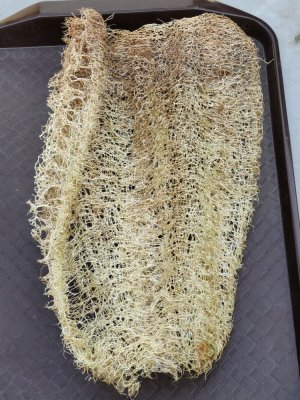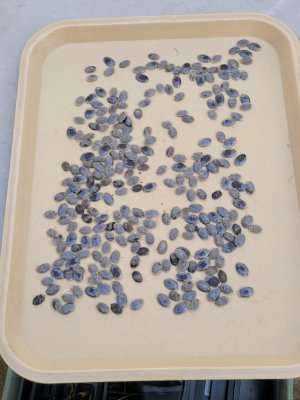Ridgerunner
Garden Master
- Joined
- Mar 20, 2009
- Messages
- 8,237
- Reaction score
- 10,095
- Points
- 397
- Location
- Southeast Louisiana Zone 9A
You do not want to leave the sweet potatoes until frost. If the vine gets frost bitten the sweet potato will rot. As long as they are buried and you get them out before they freeze the sweet potatoes themselves should be OK but at least remove the sweet potato vines.


 I had to cut through those tough fibers lengthwise to expose the seed cavities, and even then had to squeeze the seeds out from their surrounding cell walls.
I had to cut through those tough fibers lengthwise to expose the seed cavities, and even then had to squeeze the seeds out from their surrounding cell walls.
